_____Influence. ____. ____. ___. _________don’t hold back
(don't hold back under the influence). What I learned from being pushed out of a grad school program at an unspecified university that makes lots of moneyz. Featuring original artwork
Sometimes situations occur that inhibit an individual’s ability to communicate their thoughts. Other times, there are thoughts that are unable to transcend an outsider’s comprehension, or there are experiences that are so personal they appear to be nebulous… people are unable to accept your reality. Regardless of how our thoughts will be perceived, we can choose to:
1.) honor our truth and to give it a sense of agency
or
2.) rely on what other people tell us they think about our truth.
I’m choosing to share my experience as a grad student at a (unspecified) prestigious research institution. I was pushed out of my grad program, and I strongly believe this situation has enhanced my perception and comprehension of epistemic violence in various institutions in the U.S. In an effort to hold your attention, I’ll focus specifically on the institution of education.
The grad program I was involved in was a teacher education program that would lead to a Masters of Education and Teaching Credential. My experience in grad school gave me a chance to connect all of my experiences in education to one another.
The more aware I became of the way the system was designed to function, and its near perfect execution of functionality…. the more I realized I was being asphyxiated by the deprivation of liberation as well as limited space and allowance to think constructively.
I feel called to share my experience because grad school and PhD programs are not accessible and there are many factors that contribute to this phenomenon. I share this experience because I was in grad school to be a Special Education teacher. I share this experience because there are initiatives for increasing the presence of Black teachers. I share this because teachers are being killed while they're at work.
The education system is changing much faster than anyone has time to process, and these swift changes have resulted in a high demand for teachers.
We’ve been conditioned to romanticize higher education, regardless of ample evidence that exhibits consistent gatekeeping to further one’s advancement in the education system as a student or as an educator. The situation becomes a little bit more complicated when you’re a student who is only in the system because you’re pursuing a career as an educator.
Black, Alaskan Native, Indigenous, Afro-Indigenous, Native scholars are the least likely to be represented in grad school programs and PhD programs in the U.S.
We’ve been told that deciding to enter these institutions is our key to unlocking a future that we never thought would be attainable; some communities outside of our identity sometimes even tell us it’s our only option to contribute to “real” change.
Before you tell me, that this situation’s occurrence is dependent on the city that I live in or the university I was at. Let me tell you this:
I went to high school and community college less than 100 miles from here. In high school, my twin sister and I were called racial slurs for an entire class period (yes, the n-word with hard ‘r’). At the local community college, I had a professor say the n-word (yes, hard ‘r’ again), multiple times in two different classes for an entire semester. Before you tell me that’s the quality of education you sign up for when you go to community college, understand that the aforementioned professor was also working at a prestigious public university in the same town where he [still] has tenure.
Before you remind me that I’m identifying issues of a Black student at a predominantly white institution, understand I’m Afro-Indigenous and I graduated from a predominantly Native and Indigenous institution. I’ve lived in multiple states, in multiple communities.
I am aware of options for higher education in communities where I’m not an outlier, but at the same time… I’m incredibly tired of minimizing my experience and/or identity to convince myself that I belong somewhere. Not only am I Afro-Indigenous, I’m also non-binary and queer.
Each community shares common denominators of oppression. I believe the term “oppression” is used so often that people don’t think about what it truly means anymore. And why should people think about what it means, when they are either actively experiencing it or contributing to it.
Why did I go to grad school? Why do we do anything?... …anyway…
I put in a lot of work to be admitted to a grad program. a lot. Time and money, and questioning and therapy. I applied to go to art programs first, and I wasn’t admitted into any. Screen Score, Creative Writing, Film-Making. I graduated from college in May of 2020, (yep. insert words about the COVID era here).
I studied Criminology and Justice. I studied Criminology because I was focused on prison abolition and the disruption of the school to prison pipeline. When I graduated I was very lost, and I was told one of the best places to start was teaching. Most of my experience at the time was working with at-risk youth. A friend and local community organizer helped me decide one of the best options was to volunteer. I joined AmeriCorps and started my brief two year stint in Oakland’s public education system.
My initial volunteer role was an Academic Intervention Specialist. After I completed my volunteer term, I started teaching. During the second school year, I was a site substitute teacher and I eventually accepted a role to be the emergency credential art teacher. During the school year I also worked with the after school program.
During this time, outside of teaching and working with the after school program; I completed 2 culture classes with my tribe at the University of Alaska Southeast, 3 classes with the Peralta Community College District, an Art Resistance internship for the LYRIC Center for LGBTQIA+ Youth, a guest lecture at the University of California - Berkeley, and I presented for an education conference about Cultural Responsiveness.
Within the last month of teaching in Oakland, I got sick from burning myself out to the point of exhaustion. Within days of returning to the classroom to finish out the school year, I was emailed a shooting and bombing threat- directed to me and Black teachers at my school site.
The administrators didn’t tell students, families, or even other teachers about the shooting and bomb threat. There were allegations of which student sent the email, but no proof. Fortunately, the acts of violence did not take place.
I left my teaching job with the intention to gain knowledge to support students with disabilities and to develop my analysis of education so I could contribute to the disruption of the school to prison pipeline. I was convinced that grad school would be my opportunity to contribute to groundbreaking research.
I won’t bore you with the details of my course load and program, but I will acknowledge two transitions that occurred in my courses that told me it was time to re-evaluate my decision to pursue a master’s degree.
I’ll mark the beginning of my grad program with a professor who made me hyper-aware of the simultaneously- isolated and universal- experience of being a student of color. Her course included captivating articles, books, poetry, podcasts, art, videos. There was one class she had that made me cry because I was releasing painful memories and realizations that I was suppressing. Prior to her pedagogy, they were buried deep within my subconscious. She taught me that true love is telling the truth and recognizing justice. She challenged all of the teacher candidates in her class to describe the pedagogical practices they were striving for. My teaching practice was called Mindful Unity.
I want mindful unity for my students because it can build generational empowerment. In this context, when I say mindfulness, I mean conscious healing. When I say unity, I mean that the aforementioned conscious healing must transcend the differences individuals in education may face. Mindful unity cannot be unique to one specific identity, however mindful unity must be aware of the collective trauma as well as trauma that is solely experienced by one or more groups.
This first class I’m mentioning was life-changing, that’s the only way I can describe it. However, I know this wasn’t the same experience for everyone in the class.
After this class, I started another class that was supposedly focused on adolescent development. However, this class made me realize how the next generation of teachers is either being conditioned to erase critical race theory, reinforce critical race theory, or forget that it’s even a thing that people are arguing about.
For the course’s final paper, I wrote about Human Educative Instincts reflecting an individual’s innate and subconscious response to the institution of education. I explained, “Educators must create a classroom environment that is aware and conscious of the perpetuating violence and further oppression of the education system. There are ways education can be beneficial, practical, and meaningful; however, oftentimes even in spite of success, there are still students that are being placed at a disadvantage.”
The instructor told me that the claims I made were, “incompetent”.
Damn, this shit is kinda hard to reflect about.
I’ll talk about one more moment, one last entity within “the program”. An entity of numbers, if you will.
I took two math courses that were supposed to scaffold my math ability and understanding of the math curriculum. One course was with Multiple Subject teacher (MST) candidates and one course was with Special Education (SpEd) teacher candidates.
I was the only Black student in both classes. I struggled with math at various points in my life. Over the years, I learned how to utilize resources and self-help tools to process math. In a 2017 Atlantic article called How Does Race Affect a Student's Math Education?, Erika Bullock, (an assistant professor of math education at University of Wisconsin-Madison) said, “We usually don’t talk about math education from an institutional perspective. We tend to very much focus at the classroom-teacher-student level, we don’t zoom out very much to talk about it institutionally.”
In my math class with MST candidates, I was assigned a group to work with. On multiple occasions in my group, my group was unable to communicate with me to solve any math problems. There would be times where I worked my ass off to solve math problems, I would communicate my findings delicately and intentionally only to be dismissed.
My group would ignore me or convince me that I was incorrect, because they didn’t agree with my process to solve the given problems (or because they felt uncomfortable listening to me). My group was unable to communicate to solve problems correctly. I grew increasingly frustrated, and ultimately had to ask the math instructor if I could work alone during group assignments.
My math class with SpEd candidates was one of the last classes I attended before dropping out. Minutes before my last class, I found a book in the teacher candidate library called, “Multiplication is for White People” Raising Expectations for Other People’s Children, by Lisa Delpit. I found the book on a day where I was burnt out from incessant micro-aggressions and verbal assault.
The book was uplifting to me, empowering even… but I knew if I showed it to my peers and instructor it would make them uncomfortable. So, I did what I had to do. I made a scene about the book at the beginning of class. This led to laughs and forced interactions involving my peers asking if they can look at the book or borrow it. The instructor asked me if I would want to do a book report for the class.
When we entered the classroom, the instructor proceeded to address an ongoing strike that was taking place throughout the University of California system. She was trying really hard to empower us and our voice, it went over a lot of people’s heads in that class because they don’t really care about that type of shit.
I immediately was in my head for a second, like “wait… what am I doing here? This instructor is talking about social justice and I’m sitting in class for a grad program that’s exploiting my abilities at schools in the area.”
We proceeded to work on math problems. We were given several problems, and had to signal that we were done working on the problem for each problem. I signaled my completion for each problem, except for the last problem. My lack of participation prompted the instructor to ask me to share my answer and method with the class.
I [correctly] explained, then she asked me to use a different method (that she chose) to explain my answer. I used her method to explain the problem. The instructor proceeded to ask one of my peers to demonstrate my method on the white board. My peer was unable to demonstrate my thought process. I didn’t take it personally, but I did have an emotional response when the rest of my peers began berating my thought process. There were several comments and sound effects to “poke fun” at my lapse in effectively collaborating with my peers. I immediately felt like I was in a 4th grade math class, and I was the last person in the class to understand a concept so everyone started talking shit (thanks America(: <--that’s a smiley face for irony).
I stood up, and I said to the class and instructor,
“I want to acknowledge that it’s hard being a student of color in this program. It’s exhausting to be on the receiving end of comments from other candidates and instructors about the way I think or what I choose to say. No one in this room can determine my ability to succeed in this grad school program. If I decide to drop out, it’s my decision.”
In hindsight, this was a little dramatic… but, I’m still glad I said what I said. The instructor asked me if she could apologize for any harm she may have caused with her actions, to which I replied, “no”.
I will forever cherish the many births and deaths that grad school presented to me. There’s the birth of my consciousness and then there’s the rebirth and death of my willingness to succumb to the system.
I was pushed out of my program, but ultimately, I left because it was the healthiest decision for me. I was participating in an institution that quite frankly, doesn’t have the capacity to serve me. I quickly became more familiar and conscious of an aggressively oppressive system that I had been unknowingly and knowingly recovering from (I’m still recovering).




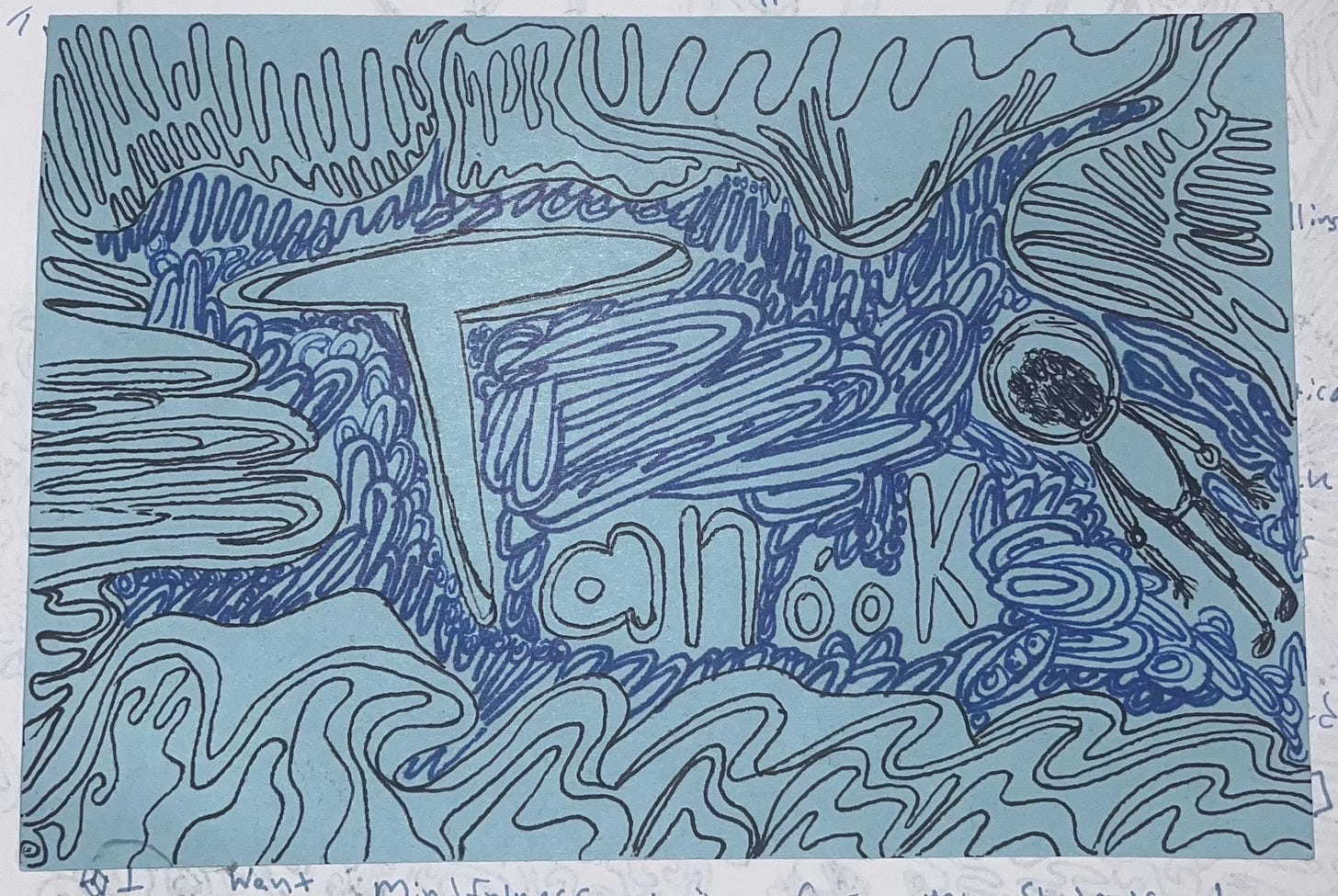






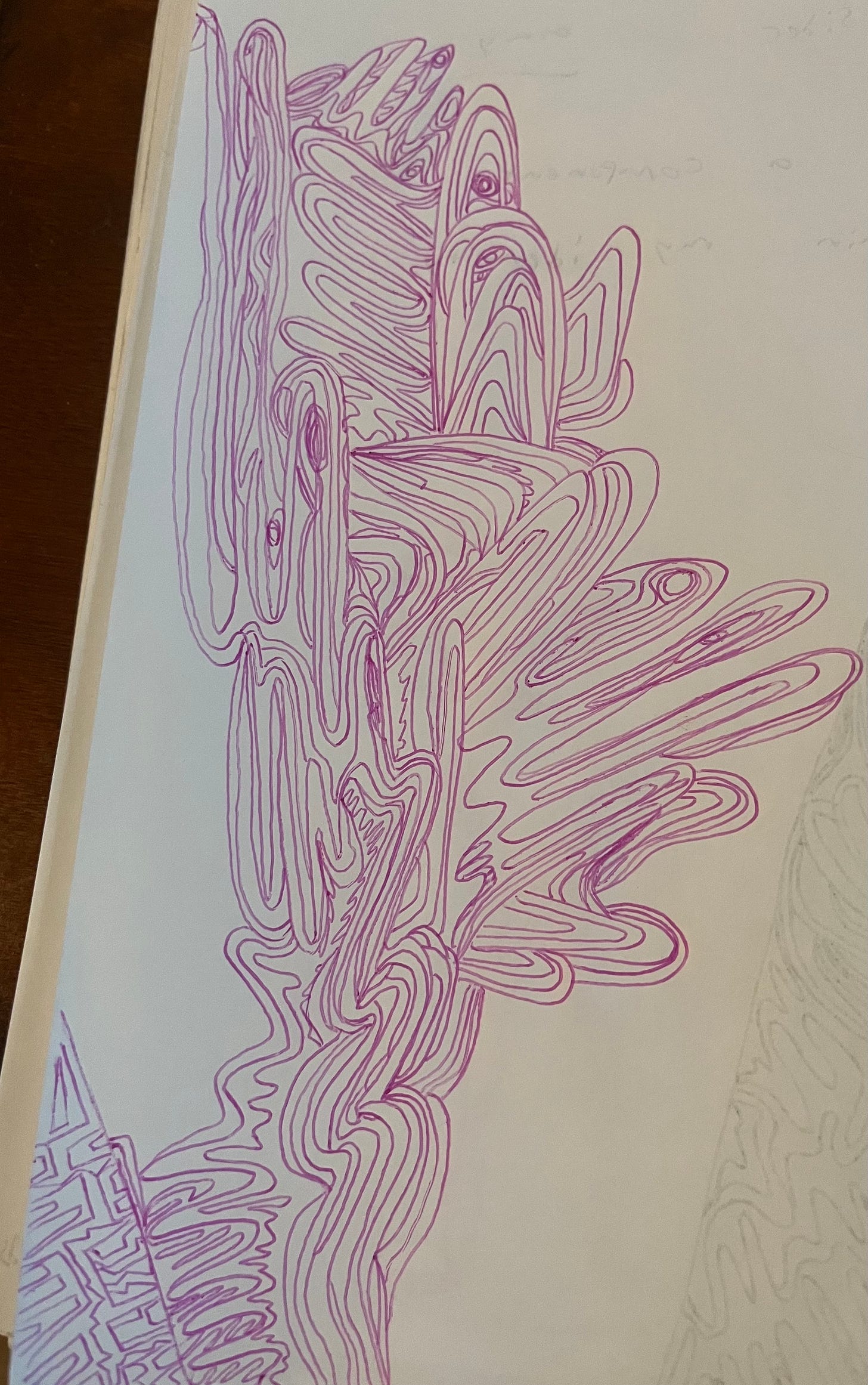

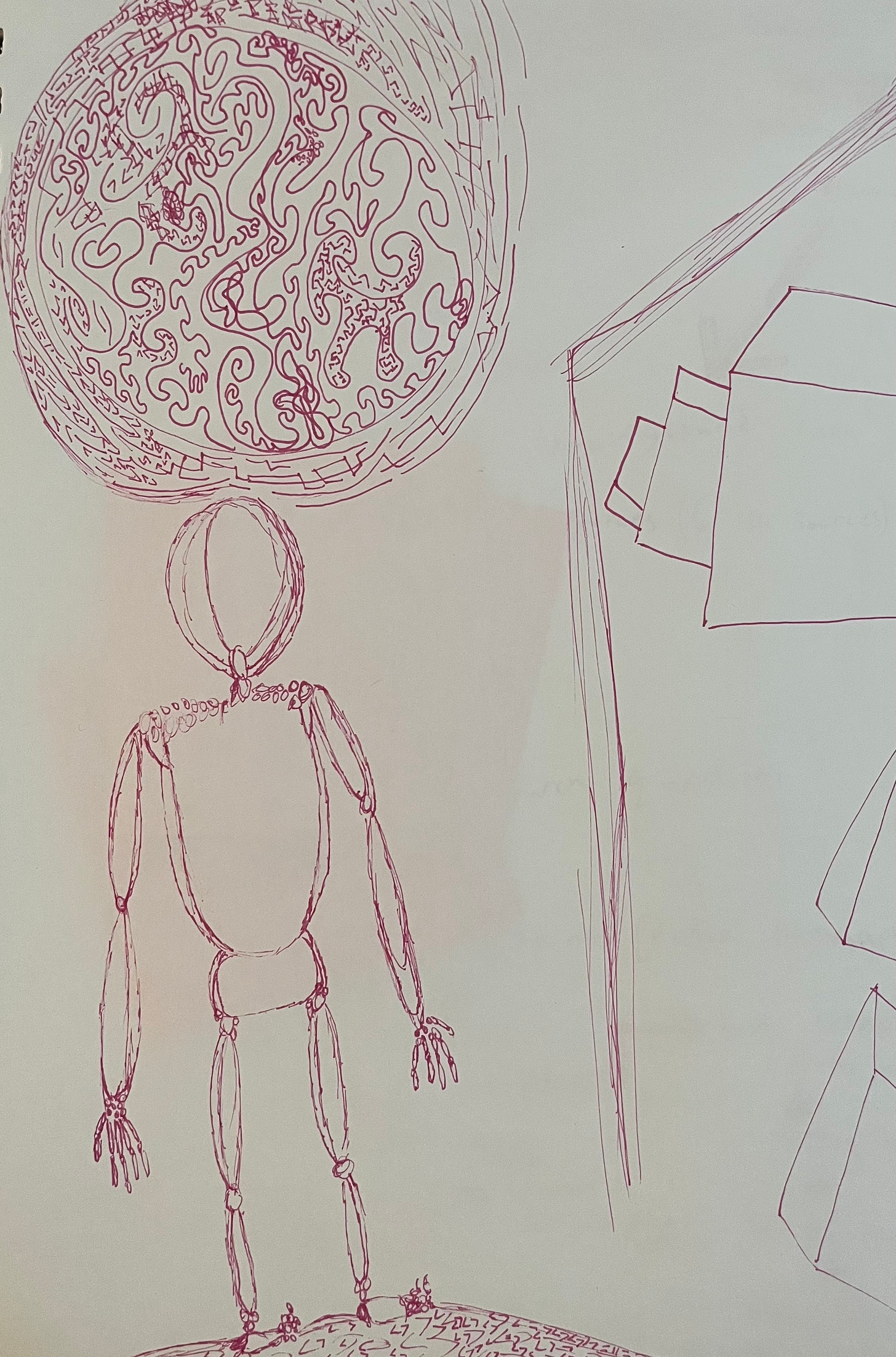
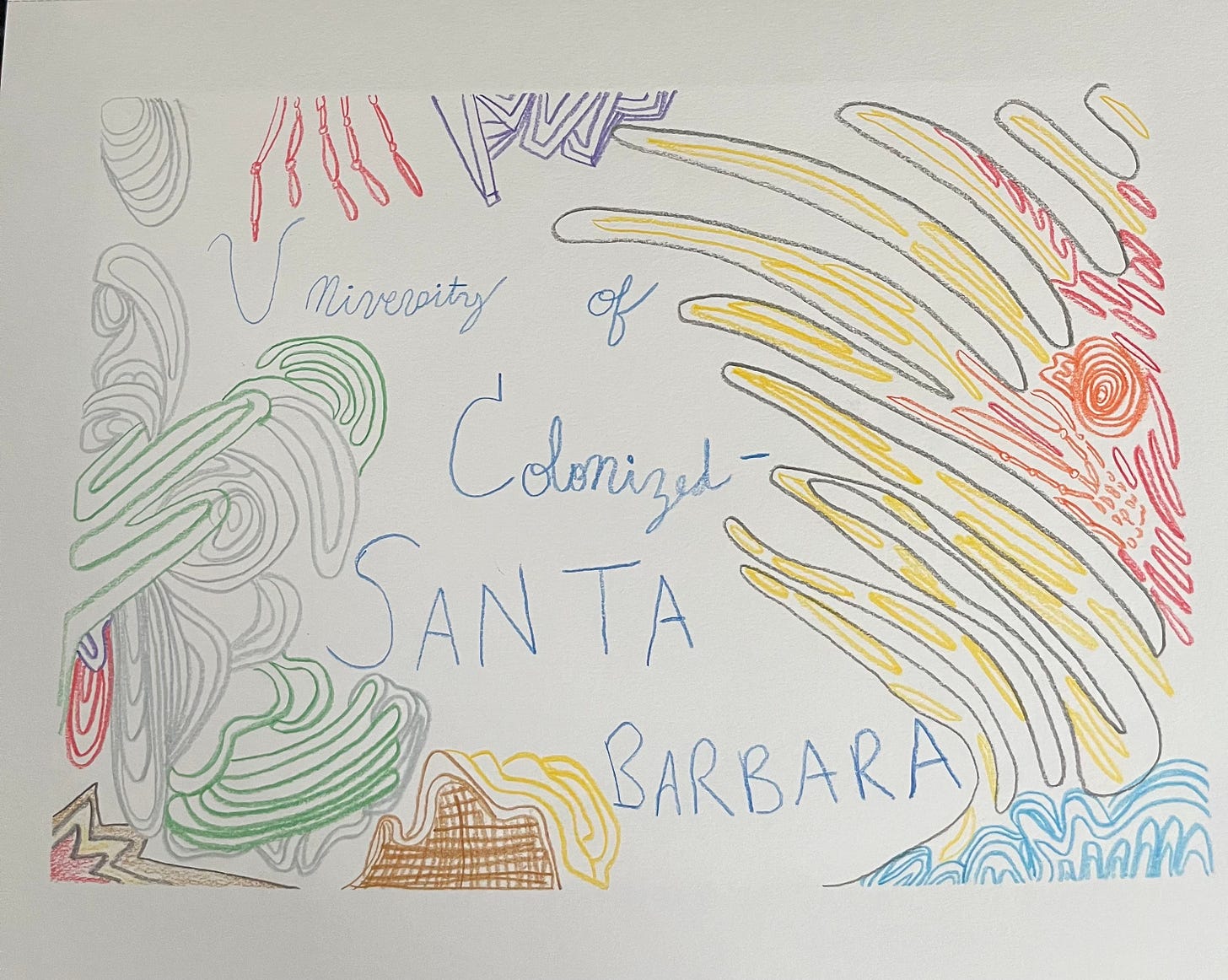
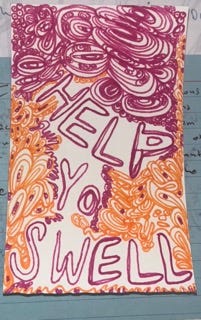
Thank you for honoring this truth and giving it agency! I appreciate the labor that went into writing this & sharing this, and i hope writing about these aggressions/traumatizing experiences was a little cathartic. Fuckkkk white academia. Stoked you are using this creative outlet and am looking forward to reading more of your work ♡